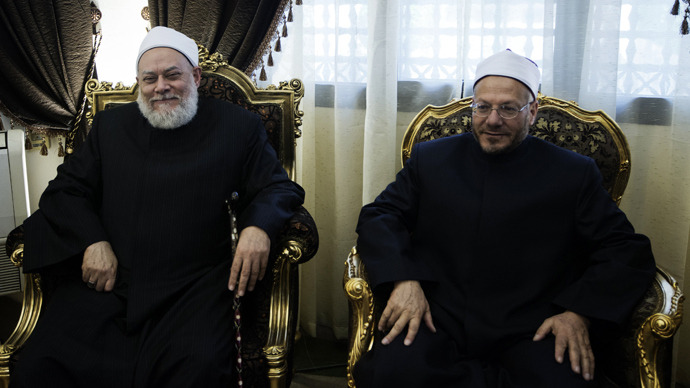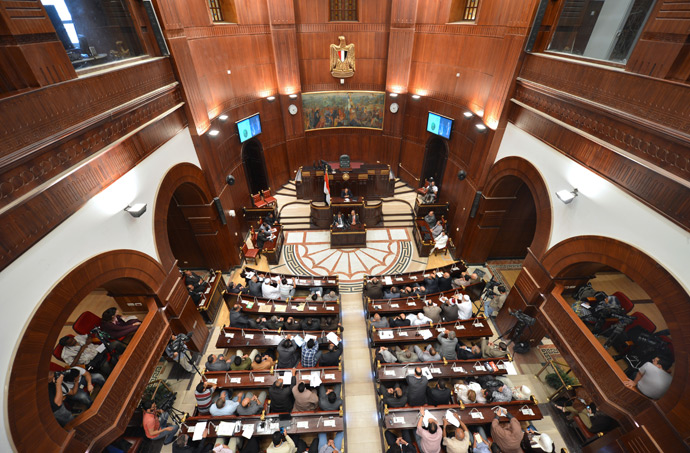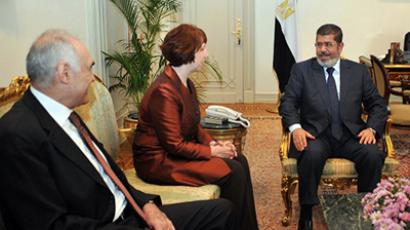Egypt approves Islamic bonds seeking to revive troubled economy

Cash-strapped Egypt might raise $15bn in a year after the country’s top religious authority approved Islamic bonds. The move has been opposed as contrary to Islamic law.
The legislation will allow Egypt for the first time to issue
Islamic bonds, or sukuk, which adhere to Islamic principles that
forbid the payment of interest.
Under the new law, the maximum term for Islamic bond ownership
is 12 years and the bonds must be redeemed. Private companies will
also be allowed to issue sukuk.
The bill regulating Islamic bond dealings was initially approved
Tuesday night by the Shura Council, the country's temporary
legislature, on condition that certain articles of the legislation
passed by the parliament are amended.
Earlier in March the parliament led by the Muslim Brotherhood's Freedom and Justice Party voted in favor of the law and referred it to President Mohamed Morsi for final approval.
However, the procedure was protested in the country's leading
Islamic authority, Al-Azhar. The body was concerned that the new
financial system will allow foreigners to own key state
assets.
It was also suspicious about its fixed interests that are not
allowed in Islam. In addition, Al-Azhar insisted that its top
scholars should have been consulted, in accordance with the newly
approved Islamist-tinged constitution.
"When a sukuk owner offers it for lending, he expects a
profit without doing anything. So, it is rather usury than
trade," the Muslim cleric Sheikh Yousef al-Badri said. Back
then he stressed that since the law was approved without
consultation with Al-Azhar, it was not "purely Islamic" as
its supporters assured.
However, despite the harsh criticism, the legislation is
expected to be profitable for the Egyptian economy, which is
struggling with a soaring budget deficit due to the lengthy period
of political and economic instability.
"The sukuk law does not allow selling, mortgaging or privatizing key state-owned properties, which was the top concern of Al-Azhar," Professor Abdel-Azim was cited by Xinhua news agency.

"In addition, a monitoring commission of Muslim scholars and
Islamic economists will be formed by the cabinet and approved by
the president to make sure that sukuk dealings conform with
Sharia," he added.
Meanwhile, the Egyptian government is seeking a $4.8 billion
loan from the International Monetary Fund to sure up its ailing
economy.
After repeated delays in loan talks with the IMF, Qatar
announced Wednesday that it would buy $3 billion worth of Egyptian
treasury bonds and provide Egypt with natural gas “whenever
necessary.” The funds will be deposited at Egypt's central
bank.
Libya also stepped up with an offer to lend Egypt $2 billion
that will be interest-free for up to 5 years.
Two years of political unrest have left Egypt's economy growing
at the slowest rate in two decades.
The nation's foreign currency reserves plunged to $13.4 billion
last month, more than 60 per cent below the level registered in
December of 2010.
In just the last four months the Egyptian currency has dropped
more than 10 percent.














